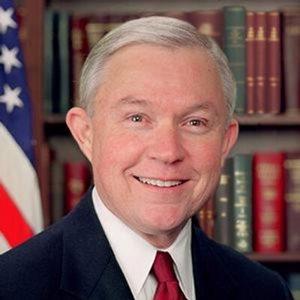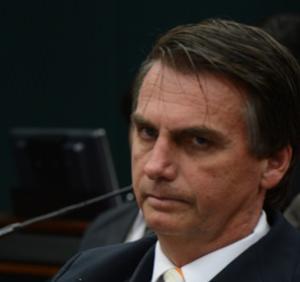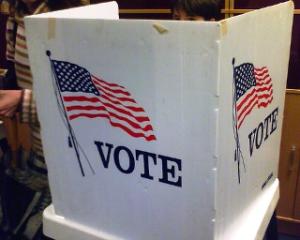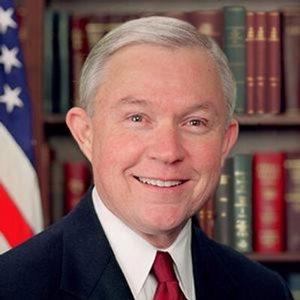And thereâs more good marijuana midterms news, too.
His vision was firmly rooted in the failed drug war of the last century.
Brazilians elected Jair Bolsonaro, "the Trump of Brazil," as their next president on Sunday. He has promised to murder drug suspects as Duterte does.
Medical marijuana initiatives win in Missouri and Utah, the FDA approves the first marijuana-based drug, and more.
Mexico's Supreme Court strikes a fatal blow against marijuana prohibition, medical marijuana is now available by prescription in the United Kingdom, a Colorado jury rejects an effort to blow up the state's legal marijuana system, and more.
A record number of gubernatorial candidates are endorsing marijuana legalization, Bay State pot shops will be open this month, cartels are experimenting with coca production in Central America, and more.
The Granite State has a new guide to marijuana legalization, ONDCP releases coca cultivation and cocaine production figures for Peru and Bolivia, Canada suffers legal pot shortages, and more.
Marijuana policy initiatives are on the ballot in four states today, so is sentencing reform in Ohio, the FDA approves a powerful new opioid, El Chapo goes on trial in New York, and more.
Three out of four marijuana initiative pass, so does one to restore the vote to formerly incarcerated in Florida, but Ohio drug defelonization fails.
Jeff Sessions is no longer the attorney general, elections have consequences in New York and DC, and more.
New York City marijuana possession arrests plummet, Utah patients will have some legal protection beginning next month, federal fentanyl sentences just increased, and more.
The expansion of legal marijuana continued apace in Tuesday's elections, with medical marijuana initiatives winning in Missouri and Utah and recreational marijuana winning in Michigan. The only loss for weed came in North Dakota, where voters approved medical marijuana two years ago but weren't ready to take the next step this year.

a glorious day in Michigan (and Missouri and Utah) (Creative Commons)
Michigan becomes the 10th state to legalize marijuana and the first one in the Midwest. With Missouri and Utah now joining the ranks, medical marijuana is now legal in 32 states.
In Michigan, the Proposal 1 legalization initiative was winning with 55.8 percent of the vote, with 96 percent of the vote counted as of Wednesday morning. The measure will legalize, regulate, and tax marijuana in Michigan for adults aged 21 and older. It allows for the possession of up to 2.5 ounces of marijuana and cultivation of up to 12 plants for personal use, while also establishing a legal framework for the licensing and regulation of marijuana businesses and products.
"The passage of Proposal 1 is a major milestone for marijuana policy reform in the US," said Matthew Schweich, deputy director of the Marijuana Policy Project (MPP) and campaign director for the Yes on 1 campaign. "Michigan will be the first state in the Midwest to end marijuana prohibition and replace it with a system in which marijuana is regulated for adult use. Adults will no longer be punished for consuming a substance less harmful than alcohol, and rather than having to resort to the illegal market, they will be able to access it safely and legally from licensed businesses. In addition to the public health and safety benefits associated with regulating marijuana, the state will have a significant new stream of tax revenue. Michigan is going to demonstrate that regulating marijuana works, and it will set a strong example for other states in the region and around the country."
"Western and northeastern states have led the way on legalizing marijuana, but the victory in Michigan powerfully demonstrates the national reach of this movement," said Maria McFarland Sánchez-Moreno, executive director of the Drug Policy Alliance (DPA), which through its lobbying arm, Drug Policy Action, helped fund and played a significant role in drafting the initiative. "With such overwhelming public support for marijuana legalization, even including majorities of Republicans and older Americans, there's only so long that the federal government can continue to hold out."
In the past decade, Michigan has seen more than 200,000 marijuana arrests, the vast majority (84 percent) for simple possession. Those arrests won't be happening anymore.
In Missouri, two of three medical marijuana initiatives won. Amendment 3, which would have imposed a 15 percent tax and set up a research institute benefiting its author, was easily defeated, while Amendment 2 had 65.5 percent support, and Proposition C had 56.5 percent. Amendment 2 was backed by both MPP and DPA.
"Thanks to the unflagging efforts of patients and advocates, Missourians who could benefit from medical marijuana will soon be able to use it without fear of being treated like criminals," said MPP's Schweich. "We hope lawmakers will implement the measure efficiently and effectively to ensure qualified patients can gain access to their medicine as soon as possible."
In North Dakota, the cold wind of prairie conservatism and the Red Wave that swamped Sen. Heidi Heitkamp (D) was strong enough to overwhelm the Measure 3 legalization initiative. It managed to garner only 40.5 percent of the vote. Measure 3 was a grassroots effort with little outside support and strong and deep-pocketed opposition.
In Utah, despite the machinations of the Mormon Church and the state's Republican political establishment, which sought to blunt support for Proposition 2 by promising to pass some sort of medical marijuana bill later this year, voters weren't willing to wait. Prop 2 had 53.2 percent of the votes, with 76 percent of precincts reporting. Even in Deep Red Utah, medical marijuana wins.
Drug reformers pronounced themselves pleased with the results and pressed for federal action to end marijuana prohibition.
"This is yet another historic election for the movement to end marijuana prohibition. Voters have once again sent a message loud and clear that it is time to legalize and regulate marijuana," said MPP executive director Steve Hawkins. "Marijuana has now been legalized for adult use in one out of every five states, so I think it's safe to say federal laws are in need of an update. We hope the results of this election will inspire Congress to finally start addressing the tension that exists between state and federal marijuana laws in our nation."
But wait, there's more. Voters in a number of Wisconsin localities, including the population centers of Madison and Milwaukee, overwhelmingly approved non-binding referenda calling for marijuana legalization, while voters approved decriminalization in five out of six Ohio cities where it was on the ballot, including Dayton.
Democratic gubernatorial candidates embracing marijuana legalization (and broader drug reform), including Gavin Newsom (CA), Jared Polis (CO), J.B. Pritzker (IL), and Michelle Lujan Grisham (NM), all emerged victorious. The last two are especially notable since, as chief executives of as yet pot prohibitionist states, they can guide their states to legalization.
And in one of the sweeter outcomes of the Democrats' retaking of the House, one of the biggest obstacles to marijuana reform in Congress, Rep. Pete Sessions (R-TX), lost to Democrat Colin Allred, a supporter of marijuana reform. As chairman of the House Rules Committee, Sessions repeatedly blocked reform measures from advancing. But his time has come and gone.
All in all, election day was a pretty good day for weed.
This article was produced by Drug Reporter, a project of the Independent Media Institute.
The Drug Policy Alliance is a financial supporter of both Drug Reporter and Drug War Chronicle.
back to top
Former Attorney General Jeff Sessions was forced out of office Wednesday after less than two years in office, and while there is intense concern about the impact the move could have on ongoing investigations of Trump campaign and administration misdeeds, for drug and criminal justice reform advocates that concern is leavened by joy and relief at the forced exit of a man who staunchly promoted harsh and repressive drug and criminal justice policies.

Jeff, we hardly knew ye. (senate.gov)
Even as marijuana reform spread across the land and support for the tough sentencing practices of last century's drug war waned, Sessions strode bravely backward as attorney general. Among the lowlights of his tenure:
He escalated the war on drugs by ordering federal prosecutors to seek the toughest charges and sentences for drug offenses, a harsh return to some of the worst excesses of the drug war, one quite out of the mainstream of even Republican sentencing policy thinking these days.
He escalated the war on drugs by undoing Obama-era restrictions on federal asset forfeiture and restarting destructive asset forfeiture practices. His actions on asset forfeiture basically gave state and local law enforcement agencies a green light to evade state forfeiture laws by handing cases off to the feds in return for a massive cut of the proceeds.
He at least formally reversed the Obama administration's "live and let live" approach to marijuana reforms in the states, undoing the Cole memo that directed federal prosecutors to leave state law-compliant pot operations alone. But Sessions' anti-marijuana crusade ended up a quixotic quest, with even President Trump suggesting an openness to legal weed and leaving Sessions spinning in the wind.
He ignored harm reduction principles and best practices aimed at reducing drug overdoses and the spread of blood-borne disease by threatening to crack down on safe injection sites, facilities where drug users can shoot up under medical supervision that also serve as a nexus between problematic users and treatment and social services.
He undermined the work of the department's Civil Rights Division, particularly by moving to end the use of consent decrees that subject police departments troubled by brutality or discrimination to federal oversight.
Even some key Republican senators rejected his retrograde approach on marijuana and sentencing reform and have criticized his resort to civil asset forfeiture. While in the Senate, Sessions was one of the biggest obstacles to sentencing reform, and since he left, bipartisan support for drug policy reform has continued to grow. It's probably too much to expect progressive policies from anyone Trump appoints to replace Sessions, but it's hard to see getting someone more regressive.
The National Organization for the Reform of Marijuana Laws (NORML) minced no words in its assessment of Sessions.
"Attorney General Jefferson Sessions was a national disgrace," said NORML director Erik Altieri. "NORML hopes that he finds the time during his retirement to seek treatment for his affliction of 1950s reefer madness."
The Trump administration needs to replace Sessions with someone more in tune with popular sentiment on marijuana, added NORML deputy director Paul Armentano.
With 33 states now recognizing the medical use of cannabis, and with 10 states having legalized the use and sales of marijuana for all adults, it is pivotal that the next US Attorney General be someone who recognizes that most Americans want cannabis to be legally regulated and that they oppose any actions from the Justice Department to interfere with these state-sanctioned efforts," he said.
The Drug Policy Alliance echoed that call.
"While Trump's dismissal of Sessions raises questions about the president's motivations, the Justice Department and Senate should seize this opportunity to right Sessions' wrongs," said DPA executive director Maria McFarland Sánchez-Moreno. "The US public understands that the drug war has failed spectacularly and needs to be replaced with a health-centered approach. It is critically important that the next attorney general be committed to defending basic rights and moving away from failed drug war policies."
Jeff Sessions: A man whose time has come -- and gone.
This article was produced by Drug Reporter, a project of the Independent Media Institute.
Drug Policy Alliance is a financial supporter of both Drug Reporter and Drug War Chronicle.
back to top
The far rightist Jair Bolsonaro won Sunday's presidential election with 55 percent of the vote. His victory promises to push Latin America's largest democracy to the right in many arenas, including drug policy, where his past pronouncements place him firmly in the camp of murderous anti-drug reform authoritarians such as Philippines President Rodrigo Duterte, who has presided over a war on drug sellers and users that has left more than 20,000 dead at the hands of police and shadowy vigilante death squads.

Jair Bolsonaro (Creative Commons)
Despite a highly divisive candidacy that included repeated
derogatory comments aimed at gays, women, black people, and indigenous peoples, his victory over the Workers Party, which has been tarnished by corruption scandals, was decisive. Bolsonaro seems likely to act as if he has a mandate from the voters to enact his extremist policies, among them extraordinarily repressive drug policies.
Thanks to London-based Talking Drugs, we have a very clear idea of just how extreme Bolsonaro's rhetoric on drug policy has been. Saying the bloody-handed Duterte "did the right thing for his country," Bolsonaro seeks to emulate him, saying repeatedly that police should kill people suspected -- not convicted -- of drug trafficking.
He has also vowed to intensify an already militarized crackdown on drug offenses, deepening the human rights and public health crises that drug prohibition has already inflicted on the country. Police and the military already work together to raid, arrest, and, too often, kill people allegedly involved in drug trafficking, especially in the favelas, the urban slums home to millions of the country's poor.
Brazil's murder rate is 27 per 100,000 people, four times the global average and higher than the rates of neighbors such as Bolivia, Colombia, and Peru -- all cocaine-producing countries. Brazil is the world's second largest cocaine-consuming country, after the United States.
Domestic drug consumption has been on the rise for years in Brazil, and although there have been legislative attempts to decriminalize drug use, drug users continue to be criminalized, contributing mightily to Brazil's ranking as the country with the world's fourth-largest prison population.
Bolsonaro wants to heighten the repressive approach. He has detailed plans to increase the involvement of the military in drug law enforcement, including targeting school children. "It would be good to have the military in the schools," he said, because "in the streets, in the schools even, the bandidos [bandits] sell drugs and smoke marijuana openly."
Speaking of maconha [Brazilian slang for marijuana], Bolsonaro isn't too fond of that, either. In fact, he sounds positively deranged on the issue. Legalizing marijuana, as neighboring Uruguay has done, would "benefit traffickers, rapists, and hostage takers," he charged, without bothering to cite any supporting evidence of his claims and in direct contradiction of the Uruguayan experience.
And in a bizarre interview with El Pais, the homophobic Bolsonaro even claimed that using drug makes people gay. When the journalist who interviewed him published the piece, Bolsonaro accused him of being gay, too.
He demonstrates a very Trumpian tendency to play fast and loose with the facts to try to score ideological points. He has linked illegal drug use to liberal governments, claiming that "drug use is prominent in countries under liberal administrations, such as Honduras, Nicaragua, El Salvador, Mexico, and Venezuela." But Honduras has been ruled by rightists since 2010 and Mexico's outgoing president is a member of the Institutional Revolutionary Party (PRI), since the 1980s viewed as center-right.
All of this doesn't bode well for progress on progressive drug policies in Brazil. In the past, there have been strong public health-based initiatives to provide harm reduction services to drug users, including a very successful program created by then Sao Paolo Mayor Fernando Haddad. His With Open Arms program provided drug users with housing, daily meals, access to health care, and the opportunity to earn money by doing cleaning work. The program was a success in reducing drug-related harms but has been dramatically slashed by his successor.
Haddad was the last candidate standing between Bolsonaro and the presidency, but the country's swing to the right overwhelmed him. While the immediate future for progressive drug reform in Brazil looks grim, the one bright spot is that, like Trump, Bolsonaro tends to make bold, yet vague, pronouncements, often with little follow-through. Let's hope his tough talk on drugs is more bluster than actual concrete policy shifts to the right, but hope isn't going to win the day. Brazilians interested in human rights, public safety, harm reduction, and drug law reform are going to have to mobilize to protect what limited gains they have one and to prevent sliding backward by embracing harsh, failed, last century drug policies.
back to top
Medical marijuana initiatives win in Missouri and Utah, the FDA approves the first marijuana-based drug, and more.
NationalFirst FDA-Approved Marijuana-Based Drug Now Available by Prescription. As of last Thursday, the marijuana-based drug Epidiolex is now available by prescription in all 50 states. The FDA approved the drug in June, but manufacturer GW Pharmaceuticals had to wait for the DEA to reclassify its compounds out of Schedule I before it could begin selling it. That has now happened. Epidiolex is used for treating a rare form of epilepsy and a genetic brain dysfunction called Dravet syndrome, both of which can cause seizures.
Iowa
Iowa Regulators Reject Bid to Raise THC Cap on New Medications. The state's Medical Cannabinoid Board voted unanimously last Friday to rebuff an effort to raise the 3% THC cap on new medications. Proponents argued that more THC is more effective in treating some conditions, while critics worried that lifting the limit could encourage abuse. "I'd like to get another year or two under our belts and see how people respond with the current THC cap," said board member Lonny Miller, a family physician from Creston.
Missouri
Missouri Votes to Legalize Medical Marijuana. Two of three medical marijuana initiatives won on Tuesday. Amendment 3, which would have imposed a 15 percent tax and set up a research institute benefiting its author, was easily defeated, while Amendment 2 had 65.5 percent support, and Proposition C had 56.5 percent. Amendment 2 was backed by both the Marijuana Policy Project and the Drug Policy Alliance.
Utah
Utah Voters Approve Medical Marijuana. Despite the machinations of the Mormon Church and the state's Republican political establishment, which sought to blunt support for Proposition 2 by promising to pass some sort of medical marijuana bill later this year, voters weren't willing to wait. On Tuesday, Prop 2 had 53.2 percent of the votes, with 76 percent of precincts reporting. Even in Deep Red Utah, medical marijuana wins. Under this measure, people with designated qualifying conditions can obtain a medical marijuana recommendation from a doctor, but patients whose conditions aren't listed have to go through a more rigorous process. Patients won't be allowed to smoke their medicine, either. It remains to be seen what will happen with medical marijuana in the legislature.
[Drug Policy Alliance is a financial supporter of the organization that publishes this newsletter.]
[For extensive information about the medical marijuana debate, presented in a neutral format, visit MedicalMarijuana.ProCon.org.]
back to top
Mexico's Supreme Court strikes a fatal blow against marijuana prohibition, medical marijuana is now available by prescription in the United Kingdom, a Colorado jury rejects an effort to blow up the state's legal marijuana system, and more.
Marijuana PolicyColorado Federal Jury Throws Out RICO Case Threatening State Marijuana Law. That didn't take long. A Denver federal court jury took only a few hours Wednesday to reach a verdict against a couple who claimed a marijuana cultivation operation was ruining their property values and threatening their lifestyle. The couple, aided by anti-marijuana attorneys, had attempted to use federal RICO statutes to undermine the state law, arguing that because marijuana is still federally illegal, its production violates federal racketeering laws. But the jury didn't buy it.
Drug Testing
Wisconsin Governor's Plan to Require Drug Testing for Medicaid Rejected. The federal Center for Medicare and Medicaid Services has rejected a proposal from Gov. Rick Scott (R) to require drug testing as a condition for receiving Medicaid benefits. Walker had proposed several changes to the state program, known as BadgerCare, and the administration approved requiring childless adults to work or lose coverage, but not the proposed drug testing. Instead of requiring drug screening and testing, Medicaid applicants will now have to complete a health assessment with questions about drug use. If the assessment indicates concerns about drug use, the applicant will be referred to treatment, but not required to go.
Harm Reduction
New York City Legislation Would Expand Opioid Treatment at Homeless Shelters. City Councilman Stephen Levin (D-Brooklyn) Wednesday filed legislation to increase access to opioid treatment at city homeless shelters. The bill would allow for easier access "We can't continue to sit by and do nothing," said Levin. "As we've seen in New York City and throughout the country, the status quo is not working. People are overdosing on opioids every day in New York City -- more than homicides and traffic fatalities combined."
International
Mexico Supreme Court Strikes Down Marijuana Prohibition. In a pair of rulings Wednesday, the Supreme Court of Mexico ruled that the country's ban on marijuana violates individual autonomy protections in the Mexican constitution. The court said adults have the right to grow, possess, and use marijuana, but that the government retains the right to regulate consumption. It also directed the federal health agency to begin to develop regulations reflecting the decision. The ruling does not legalize marijuana commerce; it would be up to the Mexican congress to take up that issue.
Medical Marijuana Now Legal in Great Britain. As of Thursday, November 1, some medical marijuana patients will be able to legally seek and obtain their medicine. Legal access to medical marijuana will be limited to patients who have "an unmet special clinical need that cannot be met by licensed products." It will be up to a special panel to determine who meets that condition, but there are worries that the system may prove too unwieldy to satisfy the needs of hundreds of thousands of potential patients.
back to top
A record number of gubernatorial candidates are endorsing marijuana legalization, Bay State pot shops will be open this month, cartels are experimenting with coca production in Central America, and more.

A cocaine lab discovered by Honduran authorities last year. (Honduran Prosecutor's Office)
Record Number of Governor Candidates Call for Marijuana Legalization. A new analysis from Marijuana Moment finds that at least 21 major party gubernatorial candidates support legalizing marijuana, far more than any previous election cycle. But there are differences: Some candidates make legalization a centerpiece of their campaigns, while others embrace it only reluctantly or if pressed on the issue. For a list of those pro-legalization would-be governors, click on the link.
California Cities, Counties to Vote on Marijuana Taxes. More than two dozen cities and counties will have marijuana taxation proposals on their local ballots next week. Among the most controversial proposals is a San Francisco move to impose a 5% tax on gross sales receipts. That would come on top of the 15% state retail tax and the city's 8.75% sales tax, meaning pot sales would be taxed at a whopping 28.75%. The fear is the high levels of taxation will drive potential purchasers to the black market.
Massachusetts Legal Marijuana Sales to Begin This Month, State Says. The chairman of the state's Cannabis Control Commission said Thursday that legal marijuana sales would get underway "within the next week or two" after final inspections of pot shops are performed. "Everything is happening as quickly as we can," Chairman Steven Hoffman said. "There are no lags. We're working closely with the licensees so they understand the process. We're getting very close." It's been two years next week since Bay State voters approved marijuana legalization.
Medical Marijuana
First FDA-Approved Marijuana-Based Drug Now Available by Prescription. As of Thursday, the marijuana-based drug Epidiolex is now available by prescription in all 50 states. The FDA approved the drug in June, but manufacturer GW Pharmaceuticals had to wait for the DEA to reclassify its compounds out of Schedule I before it could begin selling it. That has now happened. Epidiolex is used for treating a rare form of epilepsy and a genetic btylerain dysfunction called Dravet syndrome, both of which can cause seizures.
International
Cocaine Production Beginning to Pop Up in Central America. Cocaine production is starting to pop up in Central America, a development that could bring the supply of the drug closer to the US. Officials in Guatemala and Honduras have found at least four separate coca plantings this year and last year. Although the total acreage involved -- about 125 acres -- is a tiny fraction of total coca planting, local officials said the fields constituted pilot projects by drug cartels exploring whether they can reduce transportation costs and risk by moving their product from major cocaine-producing countries to Central America.
(This article was prepared by StoptheDrugWar.org's 501(c)(4) lobbying nonprofit, the Drug Reform Coordination Network, which also pays the cost of maintaining this website. DRCNet Foundation takes no positions on candidates for public office, in compliance with section 501(c)(3) of the Internal Revenue Code, and does not pay for reporting that could be interpreted or misinterpreted as doing so.)
back to top
The Granite State has a new guide to marijuana legalization, ONDCP releases coca cultivation and cocaine production figures for Peru and Bolivia, Canada suffers legal pot shortages, and more.

North America is becoming a very weed-friendly continent. (Creative Commons)
New Hampshire Commission Issues Marijuana Legalization Report. The Commission to Study the Legalization, Regulation, and Taxation of Marijuana has released its report, complete with 54 separate recommendations on how legalization should be implemented. Among them are creating a state-level Cannabis Commission to regulate it, similar to the way the state regulates alcohol. The group estimated that legalization could bring in revenue of $36.6 million a year once the market stabilizes, and possibly reaching $47 million. The report is designed to help guide any legislative moves toward legalization.
Medical Marijuana
Iowa Regulators Reject Bid to Raise THC Cap on New Medications. The state's Medical Cannabinoid Board voted unanimously last Friday to rebuff an effort to raise the 3% THC cap on new medications. Proponents argued that more THC is more effective in treating some conditions, while critics worried that lifting the limit could encourage abuse. "I'd like to get another year or two under our belts and see how people respond with the current THC cap," said board member Lonny Miller, a family physician from Creston.
Foreign Policy
ONDCP Releases Data on Coca Cultivation and Cocaine Production in Peru and Bolivia. The White House Office of National Drug Control Policy (ONDCP -- the drug czar's office) released the US government's annual estimates of coca cultivation and cocaine production for Bolivia and Peru last Friday. Although Peru produces more coca and cocaine than Bolivia, and although Peru's coca cultivation and potential cocaine production are trending up while Bolivia's are trending down, ONDCP was more critical of Bolivia. "The ongoing coca --cultivation in both Peru and Bolivia pose a threat for us as a nation, and aggravates our domestic drug addiction crisis," said ONDCP Deputy Director Jim Carroll. "It is important that our governments work together to take action against cultivation and production, and to save lives of those affected by drug trafficking. Peru continues to be a great partner and we have a shared responsibility to address this problem. In Bolivia, we would like to see real efforts against cultivation and production."
International
Canada Struggles to Meet Huge Demand for Legal Marijuana. Just two weeks after legal retail marijuana sales began, Canadian pot retailers -- both physical and online -- are having problems dealing with unexpectedly high demand. In much of the country, the legal supply has almost entirely dried up. "There is not enough legal marijuana to supply all of recreational demand in Canada," said Rosalie Wyonch, a policy analyst at the CD Howe Institute. "The shortages are happening faster than I would have expected, but our research suggested quite strongly that there would be shortages in the first year of legalization."
Colombia Announces New Strategy to Disrupt Drug Trade. Last Thursday, Colombian Attorney General Nestor Humberto Martinez announced a new "disruption policy" of going after the cocaine trade by cutting access to alkaloids and power sources in rural areas. He called for "petrochemical innovation" so that fuels stop yielding the factors needed to create cocaine hydrochloride, as well as restricting the sale of government-subsidized gasoline in cocaine and marijuana producing regions. But one analysis says the proposals "might sound innovative on paper but are unlikely to have a major impact on the drug trade and may end up hurting long-suffering residents."
Mexico's Ruling Party Plans Legislation To Legalize Marijuana Sales. Less than a week after the country's Supreme Court ruled that laws barring the personal use, possession, and cultivation of marijuana are unconstitutional, key figures in the ruling MORENA Party are already moving to craft legislation to create a legal marijuana market. First, they say, they will move to repeal the now null and void criminal laws against marijuana, and then, "We are going to take a step forward in the regulation that may already involve the production, marketing and distribution of marijuana," said Olga Sánchez Cordero, a senator who is expected to become interior secretary in the incoming government of President-elect Andrés Manuel López Obrador. "I say it from the heart: we celebrate it, the Court is setting a marvelous precedent for us to walk in that direction," Sánchez added.
back to top
Marijuana policy initiatives are on the ballot in four states today, so is sentencing reform in Ohio, the FDA approves a powerful new opioid, El Chapo goes on trial in New York, and more.

Do your civic duty today. (Creative Commons)
Marijuana Legalization, Medical Marijuana on the Midterm Ballot Today. It's not just about control of the Congress. Four states are seeing statewide marijuana policy initiatives: In Michigan and North Dakota, legalization is on the ballot; in Missouri and Utah, medical marijuana in on the ballot. Also, a number of Ohio localities are voting on decriminalization, and in Wisconsin, a number of localities will be voting on non-binding referenda on whether to legalize marijuana. Come back tomorrow for results.
Heroin and Prescription Opioids
FDA Approves Opioid Pain Reliever 1,000 Times Stronger Than Morphine. The Food & Drug Administration has approved a new opioid pain reliever that is a thousand times stronger than morphine and ten times stronger than fentanyl. The new drug, Dsuvia, will be used as a fast-acting alternative to intravenously administered opioids in hospitals. Critics warned that the new drug could be abused, but FDA Commissioner Scott Gottlieb said in a statement that it will only be used with "very tight restrictions."
Law Enforcement
El Chapo Goes on Trial in New York City. Longtime Sinaloa Cartel leader Joaquin "El Chapo" Guzman has gone on trial in New York City this week. El Chapo was extradited to the US in 2017 after escaping from a Mexican prison and being recaptured months later, and now faces a 17-count federal indictment for his role heading the cartel, including money laundering, firearms, and multiple murder charges. Although El Chapo has been out of circulation for more than a year, the Sinaloa Cartel remains arguably the most powerful of Mexican drug trafficking organizations.
Sentencing
Ohio Votes on Whether to Defelonize Drug Possession Today. Voters in the Buckeye State will have a chance to approve the Issue 1 sentencing reform initiative. The initiative would move most drug possession charges from felonies to misdemeanors. It would also allow some nonviolent offenders to receive 25% sentence reductions and would also prohibit jail time as a sentence for using or possessing drugs until the third offense within 24 months. Come back tomorrow for results.
International
Israeli Finance Minister Criticizes Delay in Approving Medical Marijuana Exports. Finance Minister Moshe Kahlon blamed the Public Security Ministry for foot-dragging on allowing exports of the herb, thus "harming Israel's economy, farmers and local industry," and called for the cabinet to act to approve exports and advance legislation. "For more than six months, the Public Security Ministry has been preventing the plan from being put on the cabinet's agenda, thereby harming Israel's economy, farmers and local industry," Kahlon wrote in a memo Monday to the cabinet secretary. "During these months a number of countries around the world, including Australia and Canada, began to export medical cannabis."
back to top
Three out of four marijuana initiative pass, so does restoring the vote to ex-felons in Florida, but Ohio drug defelonization fails.
Marijuana Policy
Michigan Becomes First Midwest State to Legalize Marijuana. The Proposal 1 legalization initiative had 55.8 percent of the vote with 96 percent of the vote counted as of Wednesday morning. The measure will legalize, regulate, and tax marijuana in Michigan for adults aged 21 and older. It allows for the possession of up to 2.5 ounces of marijuana and cultivation of up to 12 plants for personal use, while also establishing a legal framework for the licensing and regulation of marijuana businesses and products.
North Dakota Marijuana Legalization Measure Fails. The Measure 3 legalization initiative was decisively defeated. It managed to garner only 40.5 percent of the vote. Measure 3 was a grassroots effort with little outside support and strong and deep-pocketed opposition.
Ohio Towns and Cities Vote to Decriminalize Pot Possession. Five out of six Ohio localities that had decriminalization measures on their local ballots approved them. Decriminalization won overwhelmingly in Dayton, Fremont, Norwood, Oregon, and Windham. It lost in only one town: Garrettsville.
Wisconsin Voters Approve Non-Binding Marijuana Advisory Questions. Voters in localities across the state signaled their support for medical marijuana, marijuana legalization, and decriminalization in a series of local non-binding advisory questions. In all 10 counties one city where voters were asked if marijuana should be legal, they said yes, by margins of better than two-to-one. Medical marijuana got even stronger support, and in Racine, a question on decriminalization won by a margin of two-to-one.
Medical Marijuana
Missouri Votes To Legalize Medical Marijuana. Two of three medical marijuana initiatives won. Amendment 3, which would have imposed a 15 percent tax and set up a research institute benefiting its author, was easily defeated, while Amendment 2 had 65.5 percent support, and Proposition C had 56.5 percent. Amendment 2 was backed by both the Marijuana Policy Project and the Drug Policy Alliance.
Utah Voters Approve Medical Marijuana. Despite the machinations of the Mormon Church and the state's Republican political establishment, which sought to blunt support for Proposition 2 by promising to pass some sort of medical marijuana bill later this year, voters weren't willing to wait. Prop 2 had 53.2 percent of the votes, with 76 percent of precincts reporting. Even in Deep Red Utah, medical marijuana wins. Under this measure, people with designated qualifying conditions can obtain a medical marijuana recommendation from a doctor, but patients whose conditions aren't listed have to go through a more rigorous process. Patients won't be allowed to smoke their medicine, either. It remains to be seen what will happen with medical marijuana in the legislature.
Sentencing
Ohio Drug Defelonization Initiative Defeated. Voters soundly rejected Issue 1, which would have made drug possession felonies into misdemeanors, by a margin of 65 percent to 35 percent. The move, aimed at reducing the state's prison population, was opposed by prosecutors, judges, coroners, and Republican Gov. John Kasich. Issue 1 had other proposals as well: reducing prison sentences by up to 25 percent for most prisoners if they complete educational, work or rehabilitative programs. Probation violations that weren't new crimes would not have resulted in prison.
Voting Rights
Florida Votes to Restore Voting Rights to Felons. There will be nearly 1.5 million potential new voters in the Sunshine State for the next election after voters Tuesday approved Amendment 4, which restores voting rights for people in the state convicted of felonies as long as they have completed their sentences, although anyone convicted of murder or felony sex offenses would be excluded. About 9.2 percent of the state voting-age population.
International
Mexico Marijuana Legalization Bill Filed. A key ally of incoming President Andres Manuel Lopez Obrador on Tuesday filed a bill to legalize marijuana cultivation and sales. Senator Olga Sanchez Cordero, who is expected to be named interior secretary, filed the General Law for the Regulation and Control of Marijuana. The move comes just days after the Mexican Supreme Court ruled that the prohibition of marijuana for personal use is unconstitutional.
[Drug Policy Alliance is a publisher of the organization that publishes this newsletter.]
back to top
Jeff Sessions is no longer the attorney general, elections have consequences in New York and DC, and more.

A prohibitionist dinosaur bites the dust. (senate.gov)
Massachusetts Marijuana Sales Likely Only Days Away After Regulators OK Labs. The state Cannabis Control Commission has cleared two licensed marijuana testing laboratories for operations, paving the way for sales to begin within a matter of days. CDX Analytics and MCR Labs received "commence full operations" notices Wednesday. The move is critical since pot shops can only sell marijuana that has been tested for purity and potency.
New York's Path to Legalization Just Got a Whole Lot Easier. Democrats took control of the state Senate in Tuesday's elections, removing a Republican-controlled Senate as a major obstacle to pushing a legalization bill through the legislature. Gov. Andrew Cuomo (D), who also won a third term in the elections, is now a proponent of legalization, and Democratic lawmakers in Albany have already proposed bills that would legalize weed. Marijuana should move next year at the statehouse.
DC Could Finally Allow Legal Pot Sales After Democrats Take House. With Democrats back in control of the House after Tuesday's elections, the path has become more promising for the District of Colombia to embrace full commercial legalization of marijuana. DC residents voted for legalization in 2014, but the Republican House has consistently blocked any moves toward creating a system of taxed and regulated marijuana commerce. At a post-Election Day news conference, Mayor Muriel Bowser reiterated her commitment to establishing a regulatory scheme for marijuana sales early next year. City council members cautioned, though, that removing congressional riders and setting up a legal weed market in the city could take at least a year.
Law Enforcement
Jeff Sessions Out as Attorney General. Attorney General Jeff Sessions resigned at President Trump's request Wednesday after less than two years in office. Sessions pursued an aggressive agenda to escalate the war on drugs by ramping up sentencing for drug offenses, restarting destructive asset forfeiture practices, and threatening crackdowns on marijuana legalization and supervised consumption services. Sessions also undermined the work of the Department's Civil Rights Division, opposing steps to hold police accountable for abuses, including killings of African Americans. Trump appointed Matthew Whitaker as acting attorney general and will now select a new AG, who must be approved by the Senate.
back to top
New York City marijuana possession arrests plummet (finally), Utah patients will have some legal protection beginning next month, federal fentanyl sentences just increased, and more.

a lethal dose of fentanyl (DEA.gov)
Michigan US Attorneys Warn That Federal Prohibition Remains in Force. In a joint statement released Thursday, US Attorneys for Michigan Matthew Schneider and Andrew Birge warned that even though voters there legalized marijuana on Tuesday, "marijuana continues to be an illegal drug under federal law" and that they "will not unilaterally immunize anyone from prosecution for violating federal laws simply because of the passage of Proposal 1." That said, the federal prosecutors then conceded "our offices have never focused on the prosecution of marijuana users or low-level offenders" and that "as we weigh the interests in enforcing a law, we must also consider our ability to prosecute with our limited resources."
Arrests for Low-Level Marijuana Possession have Decreased 90 Percent Following New NYPD Marijuana Guidelines. Arrests for low-level marijuana possession have plummeted 90 percent since new NYPD marijuana enforcement guidelines took effect in September. There were 151 arrests for low-level marijuana in the entire city of New York in September 2018, less than 10 percent of the 1,500+ arrests last September and 3 percent of the 4,300+ arrests that took place in September 2010. However, racial disparities in enforcement still persist, with Blacks and Latino people comprising around 80 percent of the 1,000 summonses issued for marijuana.
Medical Marijuana
Utah Patients Will Have Legal Protections Beginning December 1. Although it could take months or years for the state to get a medical marijuana cultivation and distribution system up and running, medical marijuana patients will win some protections from arrest and prosecution beginning on December 1. That's because the Prop 2 initiative approved by voters includes an "affirmative defense" provision protecting them from a criminal conviction. It doesn't explicitly protect patients from arrest, but the hope is that with little likelihood of a successful prosecution, police will have little incentive to actually arrest patients.
Heroin and Prescription Opioids
Harsher Federal Penalties for Selling Fentanyl-Laced Drugs Are Now in Effect. New federal sentencing guidelines that went into effect November 1 significantly increase the possible prison sentence faced by people who sell heroin or cocaine laced with fentanyl. The new guidelines "create a four-level enhancement for a defendant who knowingly misrepresents or knowingly markets as another substance a mixture containing fentanyl or a fentanyl analog," which translates into sentences nearly twice as long as previously. While the guidelines only apply to someone who intentionally sought to deceive buyers, the realities of the federal criminal justice system -- where the vast majority of cases end with plea bargains -- mean that prosecutors will rarely have to prove the intent to deceive.
back to top










